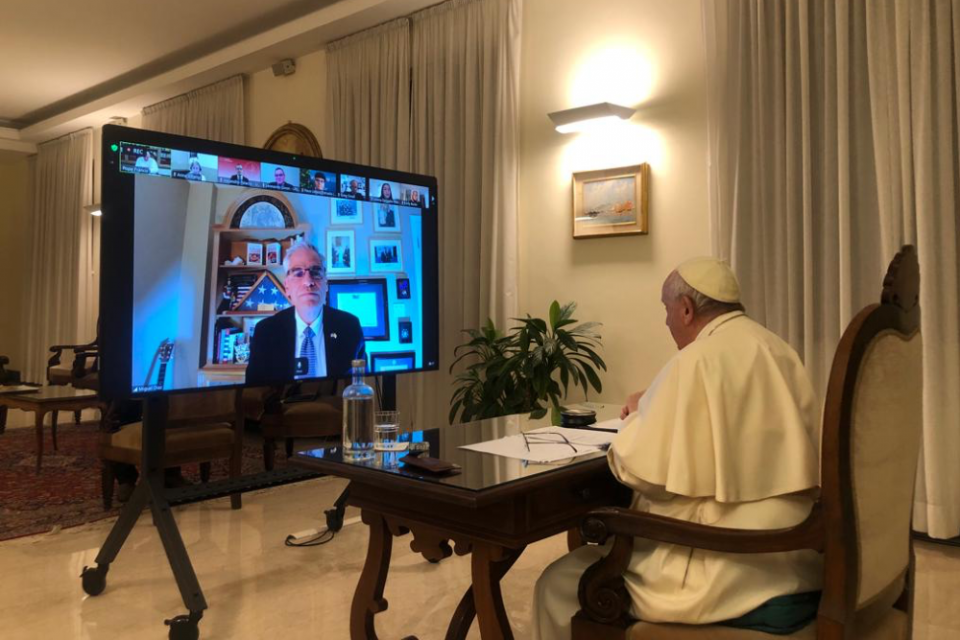~ by Miguel H.Diaz, National Catholic Reporter
The historic February 24 encounter between Pope Francis and college students from across the Americas was part of a larger continental experience of synodality that involved 58 universities in 21 countries. For two months university students across seven regions in the Americas gathered virtually in a synodal process exploring the root causes of migration and dreaming together just resolutions.
The initiative was born from a collaboration between Argentinian theologian Emilce Cuda and Loyola University Chicago. The powerful public meeting between Francis and university students was mutually rewarding. Afrikaan Sahra, a refugee from Somalia, described the process as life changing. He observed how the Pope “was tenderhearted and very open-minded to differences.” A number of the students were touched by the fact the Pope listened to them, took notes during the Zoom meeting, and commented on their ideas and proposals to tackle the root causes of migration. Cuda commented that Francis “is still caught up in joy, delighting in the moment that he shared with them.”
Many have now begun to ask what comes next. These students want more than business as usual in the church. They want conversation to evolve into concrete actions, and they want marginalized people to be recognized as agents of change. As these students dream of a new beginning in the church, they are ready to take the lead in this innovative educational and synodal initiative to address the salient signs of the times within and beyond our American continent
Welcoming new minds, hearts and hands lies at the heart of a synodal church. As Pope Francis mentioned in his conversation with the students, this means that the church, as people of God, must be willing “to open its doors and exit from its temples to meet Jesus in the streets.”
To become this synodal presence in the world is to embrace the mind, the heart and the hands of Jesus and seek to encounter and serve him preferentially among the poor and marginalized. The students who participated in this synodal process expressed deep commitments to become this synodal presence in the world, especially by placing themselves, their studies and their talents in service to re-incorporating those who have been disenfranchised from church and society, marginalized and oppressed by ecclesial and socioeconomic realities.
